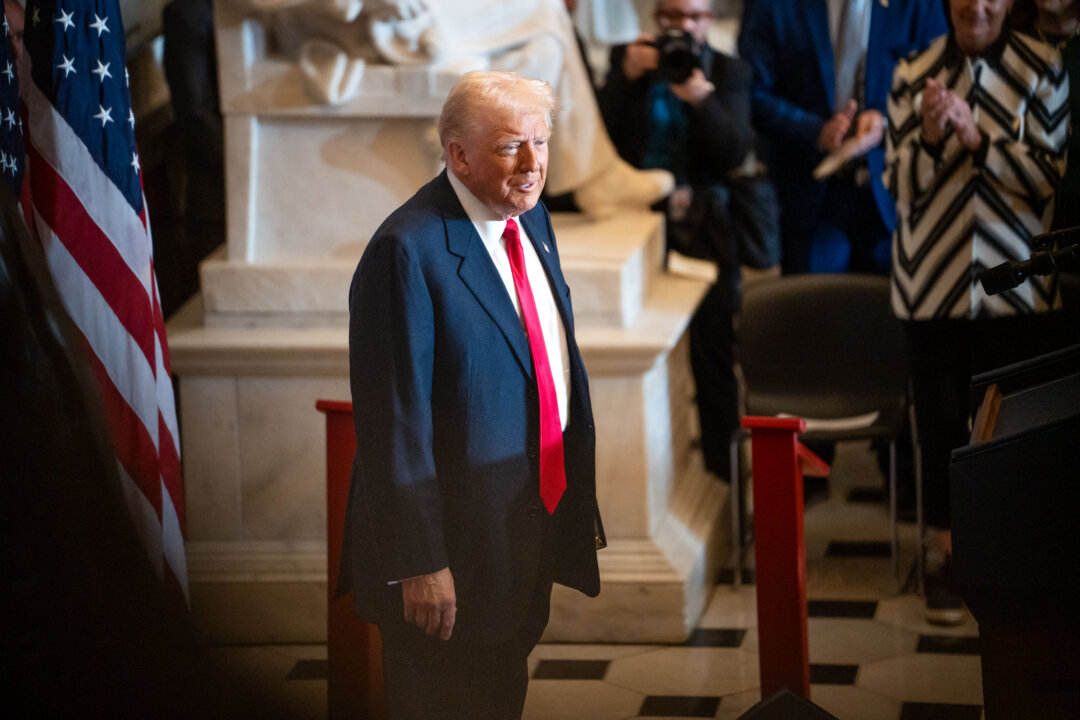New rules will target individuals involved with ICC investigations with visa and financial sanctions.
President Donald Trump signed an executive order on Feb. 6 to impose visa and financial sanctions on individuals who assist the International Criminal Court (ICC) in investigating the United States and its allies.
Policy actions take effect immediately, with the goal of deterring investigations into military activities.
The ICC’s actions targeting the United States over incidents in Afghanistan and targeting Israel over its security measures related to Palestinian territories are contrary to “national sovereignty and security interests,” according to a fact sheet provided by the White House.
Established in 1998 by the Rome Statute, the ICC was meant to provide judicial services when no other options were available.
The United States, which has been investigated by the ICC on several occasions, never agreed to the statute or ICC jurisdiction.
The White House stated that the ICC and its chief prosecutor are granted overly broad, “unaccountable powers that pose a significant threat to United States sovereignty and our constitutional protections.”
The executive order stated that arrest warrants issued by the ICC in November 2024 accusing Israeli Prime Minister Benjamin Netanyahu and former Israeli Defense Minister Yoav Gallant of crimes against humanity and war crimes are a “politicization” of the court.
“The ICC consistently constrains liberal, democratic nations like Israel in exercising their rights to self-defense,” the White House fact sheet reads. “At the same time, the ICC has failed to hold regimes like Iran accountable for their crimes against humanity.”
The order stated that its rulings on the United States and Israel are detrimental to the credibility of the court and alleged a “clear double standard” was applied in the investigation of groups that oppose Israel.
The ICC also issued an arrest warrant for the terrorist group Hamas’s military chief.
Additionally, the order questions the effectiveness of the court—which it alleges has secured fewer than 10 prosecutions over 20 years and at a cost of more than $2 billion.
Supporters of the new sanctions suggest the regulations could help secure U.S. interests.
Critics say that human rights violators could escape justice if the ICC is neutralized or eliminated.
A bill known as the Illegitimate Court Counteraction Act, introduced in the U.S. House of Representatives in December 2024, sought to impose similar sanctions.
The measure passed the House with bipartisan support, but late last month, the Senate rejected it.
Only one Democrat, Sen. John Fetterman of Pennsylvania, voted with Republicans to advance the bill.
Trump previously sanctioned the ICC and some key officials in 2020 when he froze the assets and banned the entry of families following investigations into the conflict in Afghanistan.
He has persistently denounced the organization, telling the United Nations General Assembly in 2018 that “as far as America is concerned, the ICC has no jurisdiction, no legitimacy, and no authority.”
How the new sanctions will affect the organization remains unclear.
The ICC did not respond to requests for comment by publication time.

